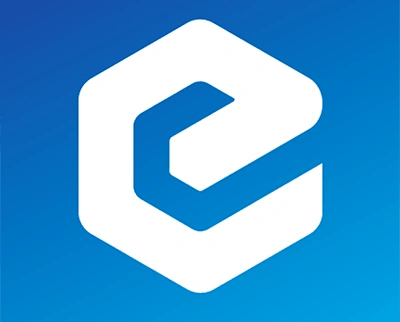订阅 wiki
Share wiki
Bookmark
eCash
0%
eCash
eCash (XEC) 是一种加密货币,它从 Bitcoin Cash ABC (BCHA) 更名而来,旨在作为互联网的点对点电子现金系统发挥作用。该项目采用混合共识模型,将工作量证明与 Avalanche 共识协议相结合,以促进可扩展的全球支付,并实现近乎即时的交易终结。 [1] [2]
概述
eCash 是 比特币 (BTC) 和 比特币现金 (BCH) 的一个分支,由 比特币现金 的首席开发者 Amaury Séchet 领导。该项目于 2021 年 7 月 1 日正式从 比特币现金 ABC 更名为 eCash,其核心使命是创建一种全球可用、可扩展的数字货币形式,作为一种可靠的交换媒介。更名后,该货币被重新命名为“bits”,相当于 100 聪,通过避免交易中的小额小数,简化用户体验。 [2]
该项目的理念根植于实现其开发者认为的 比特币 最初愿景,即“抗审查的全球支付网络”。eCash 团队表示,像 比特币 这样的项目因缺乏可持续的资金和治理模式而受到阻碍,导致风险投资支持的实体对其产生外部影响,使其偏离了点对点现金的重点。为了避免这种情况,eCash 实施了基础设施融资政策 (IFP),这是一种链上机制,用于资助协议开发和生态系统增长,确保其独立运营和发展的能力。 [3]
eCash 的一个关键技术目标是将交易吞吐量从每秒约 100 笔交易扩展到每秒超过 500 万笔交易。技术路线图侧重于通过混合共识架构实现这一目标,通过代币化和 EVM 兼容性等功能扩展协议,并执行由协议本身资助的政治上分散的治理模型。一个重要的里程碑是其 雪崩 共识层于 2025 年 11 月全面激活,这使得交易可以在三秒内完成。 [1] [2]
架构
eCash 利用一种称为 Avalanche 增强型工作量证明 (APoW) 的混合共识机制,该机制将传统的工作量证明 (PoW) 安全层与基于 Avalanche 协议的权益证明 (PoS) 共识和最终性层相结合。 Avalanche 的这种实现是由 Bitcoin ABC 团队为 eCash 开发的,是一个不同的项目,与 Avalanche (AVAX) 区块链无关。 [4]
工作量证明(PoW)层
eCash区块链的基础层依赖于中本聪共识(PoW),矿工竞争解决密码学难题以产生新区块。这为网络提供了基本的安全性、不可变性和可公开验证的账本。PoW层确保网络保持无需信任和去中心化,允许任何新节点加入并与区块链的历史同步,而无需依赖受信任的第三方。 [4]
Avalanche Overlay Network
运行在PoW层之上的是 Avalanche 协议,它作为一个高速协调和最终性层。在这个系统中,staking XEC 被用作一种 Sybil 抵抗机制,以授予参与 Avalanche 共识过程的权利,而不是用于区块验证。Avalanche 网络中的节点使用重复的、随机的轮询来快速达成关于交易和区块有效性和最终性的超多数共识。该集成分两个主要阶段实施。 [4]
Avalanche 后共识
后共识于 2022 年 9 月 14 日启动,是 Avalanche 整合的第一阶段。在 PoW 矿工发现并广播一个新区块后,Avalanche 节点网络会进行一轮投票,以就该区块达成一致。此过程将区块锁定为链的规范顶端,提供单区块最终性,并保护网络免受区块链重组和 51% 攻击。此功能使攻击者更难以撤销交易,因为它需要控制网络的大部分哈希率和绝大多数的 XEC 质押。 [1] [4]
Avalanche 预共识
预共识于2025年11月15日在区块高度923,347启动,是 Avalanche 集成的最后阶段。此功能允许节点网络在交易包含在已挖掘的区块中之前,就交易的有效性和顺序达成共识。这种实时共识层使交易能够在三秒内被确认为最终和不可逆转的,从而消除了用户等待多个区块确认以确保结算安全的需求。 [1]
其他架构组件
- Chronik 索引器: 于 2024 年 4 月发布,Chronik 是一个高性能的定制区块链索引器,用 Rust 编写,并直接集成到 Bitcoin ABC 完整节点软件中。它充当 eCash 区块链的专用搜索引擎,通过 WebSockets 提供对交易历史、代币数据和实时通知的快速可靠访问。该项目由全球网络委员会于 2022 年 4 月资助,并作为 Cashtab 等钱包和官方区块浏览器的后端。 [5] [2]
- AssumeUTXO: 于 2025 年 5 月推出,此功能允许新节点更快地与网络同步。新节点可以从最近的、受信任的“未花费交易输出 (UTXO) 集”快照开始,而不是处理从第一个区块开始的整个区块链历史记录,从而显着减少初始设置时间。 [2]
- Heartbeat 升级: 于 2024 年 11 月实施,此升级引入了一种改进的挖矿难度调整算法。该功能旨在提供更稳定的区块时间和一致的网络性能。 [2] [4]
功能
eCash 包含多种功能,旨在增强其作为数字现金系统的可用性、安全性和功能。
- 即时交易终结性: 通过利用 Avalanche 预共识,eCash 交易在三秒内完成并被认为是不可逆转的。 这是销售点支付、交易所存款和其他必须最大限度地降低结算风险的时间敏感型应用的关键功能。 [6]
- 质押奖励: eCash 是第一个提供原生质押奖励的基于 Bitcoin 的项目。 质押至少 1 亿 XEC 并运行 Avalanche 节点的用戶可以参与共识层,为网络安全做出贡献,并分享区块奖励。 质押是非托管的,这意味着资金不会被锁定,并且没有被削减的风险。 [4]
- eToken: eCash 网络支持创建自定义的可替代和不可替代的代币。 此功能在 2024 年 12 月进行了详细说明,允许任何用户在 eCash 区块链上发行自己的代币,用于稳定币、项目特定代币或数字收藏品等目的。 这些代币受益于与原生 XEC 相同的交易速度和终结性。 [2] [6]
- 增强的安全性: PoW 和 Avalanche 后共识的结合提供了强大的安全模型。 后共识会在区块被挖掘后立即完成区块,从而防止链重组,并使 51% 攻击的执行变得更加困难和昂贵。 [4]
- CashFusion: eCash 支持 CashFusion,这是一种从其 Bitcoin Cash 传统继承而来的选择加入隐私协议。 2024 年 3 月发布的一份指南详细介绍了用户如何利用该协议将其交易与其他用户的交易合并,这有助于模糊交易图并增强链上隐私。 [2]
- eCash 别名: 一个人可读的地址系统正在开发中,并在 2023 年 6 月提供了预览。 此功能旨在用简单、易记的名称替换冗长、复杂的加密货币地址,以改善用户体验并降低发送资金时出错的风险。 [2]
这些功能对于项目创建高度实用的电子现金系统的目标至关重要。 [4] [2]
产品和生态系统
eCash 生态系统由不断增长的工具、平台和应用程序套件支持,这些工具、平台和应用程序面向最终用户和开发人员。全球网络委员会 (GNC) 为关键的生态系统项目提供了资金。 [2]
- Cashtab: eCash 的主要 Web 钱包,为发送、接收和管理 XEC 和 eToken 提供了一个用户友好的界面。2024 年 4 月,Cashtab 引入了对 NFT 收藏品和铸造的支持,由 Chronik 索引器提供支持。 [5] [2]
- PayButton: 一个简单、可嵌入的支付按钮,允许商家和内容创作者在其网站上轻松接受 eCash 付款。该项目在 2022 年 5 月获得 GNC 资助后,于 2023 年 9 月正式启动。PayButton 的 WordPress 插件于 2025 年 5 月发布。 [2]
- Chronik: 虽然 Chronik 是一个架构组件,但它也是开发人员的产品,为在 eCash 上构建应用程序提供必要的后端基础设施。它被官方区块浏览器和各种社区开发的工具使用。 [5]
- Agora: 在 2024 年 10 月的博客文章中被描述为“Token Bazaar”,Agora 是一个专为交易在 eCash 网络上创建的 eToken 而设计的市场。 [2]
- eCash 区块浏览器: 用于查看和搜索 eCash 网络上的交易、区块和地址的主要工具。它可在
explorer.e.cash上找到,并由 Chronik 索引器提供支持。 [2] - 其他工具: 该生态系统还包括诸如 Firma (
firma.cash) 用于链上签名和 XECX (stakedxec.com) 与 XEC 质押相关的服务等工具。 [4]
用例
eCash的技术特性,特别是即时终结性和低交易费用,使其能够在基础层实现广泛的用例。
- 点对点电子现金: 主要用例是作为日常在线支付和商业的交换媒介,从小额交易到较大额支付。[1]
- 实时商业: 即时终结性允许在在线和实体零售环境中提供与传统信用卡相当的支付体验,消除了漫长的确认等待时间。[6]
- 小额交易和流支付: 网络的效率使得实时处理极小额支付在经济上可行。这支持诸如按秒付费媒体流、API使用费或物联网设备的自动支付等商业模式。[6]
- 加密货币交易所集成: 即时终结性允许像Binance、Upbit和HTX这样的交易所几乎立即记入用户存款,因为它们不再需要等待多个区块确认来减轻双重支付风险。[1]
- 代币化和DeFi: eTokens协议支持创建同质化和非同质化代币,用于稳定币、去中心化交易所和其他金融服务等应用。网络的速度支持无需信任的原子交换和其他即时结算应用。[6]
- 游戏和数字资产: 该协议可用于游戏内经济,其中资产、奖励和物品可以在玩家之间即时且不可撤销地交易。[1]
- 机器对机器(M2M)经济: 该网络为物联网(IoT)中的自主设备提供可靠的结算层,以便在没有人工干预的情况下相互交易数据、能源或物流等服务。[6]
代币经济学
eCash网络的原生货币是XEC。其代币经济学旨在支持网络的安全、开发和治理。
代币详情
- 代码: XEC
- 总供应量: XEC的总供应量固定为21万亿。这与比特币的2100万枚代币供应量相对应,但重新调整了面额,调整系数为一百万(从8位小数改为2位小数),这一更改旨在提高可用性。 [2]
效用和分配
XEC代币的主要用途包括支付、质押和支付网络费用。来自区块奖励的新XEC的分配由基础设施资金政策管理。 [3]
- 支付: XEC是网络上所有点对点交易的本地货币。
- 质押: XEC被质押以运行Avalanche节点,参与网络共识和治理,并赚取质押奖励。
- Gas费用: XEC用于支付网络上的交易费用,包括创建和转移eToken的费用。
截至2025年8月,区块奖励的分配如下:
- 矿工(工作量证明): 58%
- 协议开发(Bitcoin ABC): 16%
- 生态系统开发(全球网络委员会): 16%
- Avalanche质押奖励: 10%
这种分配模式旨在为网络的所有关键方面提供直接的链上资金。 [3]
治理
eCash的治理和资金通过其链上基础设施资助政策(IFP)和全球网络委员会(GNC)进行管理。 [3]
IFP是一项协议规则,自动将每个区块奖励的一部分(截至2025年8月为32%)分配给开发基金。这为网络基础设施、软件开发和生态系统增长提供了可持续和可预测的资金来源。IFP的参数,包括分配百分比和受益人,不是硬编码的。相反,它们可以通过Avalanche质押层参与者进行的正式链上投票过程进行修改。这允许敏捷治理和网络升级,而无需有争议的链分裂。 [4] [3]
全球网络委员会(GNC)是负责分配IFP资金中“生态系统开发”部分的管理机构。GNC资助了许多关键的基础设施和研究项目,包括Chronik Indexer(2022年4月)、PayButton项目(2022年5月)、RaiPay开发的Block Explorer 2.0(2022年1月)以及关于Ciudad Morazán P2P现金使用情况的研究(2022年12月)。 [2]
已确认的合作伙伴关系和集成
eCash已建立多个合作伙伴关系和集成,以扩展其生态系统和采用。
- 北马里亚纳群岛政府: 2025年5月,北马里亚纳群岛通过了一项法案,承认基于eCash区块链构建的稳定币mUSD。这代表着与政府实体合作,以实现现实世界的采用。 [6]
- NOWNodes: 2025年9月2日宣布建立合作伙伴关系,为用户和服务提供访问eCash区块链和验证交易的替代方式。 [2]
- RaiPay: GNC于2022年1月批准了对RaiPay团队的资金,以开发区块浏览器 2.0。该团队由Chonik的创建者Tobias Ruck领导,还与比特币 ABC直接合作,全面集成了Chronik索引器,标志着重要的开发合作伙伴关系。 [5] [2]
- RocketX: 2022年1月3日宣布与跨链去中心化交易所和流动性聚合器建立官方合作伙伴关系。 [2]
- Crypto.com: 从2021年12月开始的集成允许eCash项目直接在Crypto.com XEC价格页面上分享新闻和更新。 [2]
- 硬件钱包: eCash已记录了对多个硬件钱包的官方支持和集成,包括Trezor、D'CENT和Satochip。 [2]
发现错误了吗?
